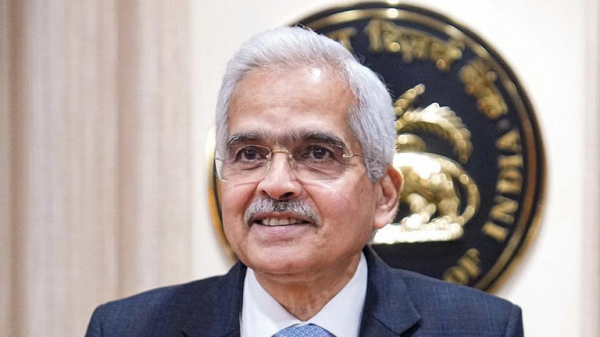"Expectations for Loan EMI Changes Post June 7 RBI MPC"
- by B2B Desk 2024-06-06 12:37:35
When can you expect a decrease in your loan EMIs? If you're wondering about that, the RBI's MPC meeting on June 7 might not meet your expectations! The RBI has been dealing with food inflation for a long time, but the latest election outcomes have presented a new hurdle for the central bank in relation to potential interest rate reductions. The concern now includes the likelihood of a fiscal environment driven by populist spending.
RBI's Monetary Policy Committee convenes every two months to determine key rates like repo rate and CRR in order to maintain inflation near the target of 4% while also promoting economic growth. The repo rate is the interest rate at which the RBI provides loans to banks. Lowering the interest rate on repurchase agreements reduces borrowing costs for banks, resulting in decreased interest rates on loans and lower monthly installments.
Before the election outcomes were announced, there was a lot of excitement in the bond markets about the possibility of the Centre reducing the fiscal deficit by a large margin, thanks to the record surplus dividend received from the RBI. Nevertheless, the outcomes portray a contrasting situation.
Tanvee Gupta Jain, an economist at UBS Securities, stated to ET that political stability may lead to consistent policy agenda, but there is a potential for a shift towards populist measures in the third term, targeting lower income groups, and a delay in implementing tougher economic reforms. She stated that in the upcoming budget (in July), she expects the government to follow a medium-term fiscal consolidation plan with a populist inclination.
It was unlikely that the RBI's policy statement on June 7 would announce a rate cut, however, progress by the Centre in fiscal consolidation and reducing borrowing would give the central bank confidence in the economy's aggregate demand conditions.
Traders in India's overnight indexed swap market on Tuesday indicate low possibility of rate cuts in 2024 due to concerns about inflation from higher public spending.
Madhavi Arora, the head economist at Emkay Global Financial Services, highlighted that the BJP will rely on regional partners such as Telugu Desam and Janata Dal (Secular) and adapt policies accordingly. Next, there will be an increased need to boost spending in the economy by both the BJP and its partners.
Nonetheless, the government has a substantial financial buffer thanks to the RBI's transfer of Rs 2.11 lakh crore as surplus to the government, exceeding twice the estimated dividend from the central bank and PSU institutions. This gives the government the ability to increase spending on stimulating consumer spending in the economy, if necessary, without causing significant harm to the fiscal balance.
Madan Sabnavis, who serves as the chief economist at Bank of Baroda, stated that the government currently possesses an additional income of Rs 1 lakh crore, which can be utilized in various ways. I believe the government does not face a significant dilemma. He suggested that if there were no limitations, the government could have aimed for a 4.9% fiscal deficit instead of 5.1% this year. However, he believes there is no need to rush as they are slowly moving back to 4.5%.
Also Read: NSE sets a new world record for highest number of transactions
POPULAR POSTS
Loan EMIs to Drop as RBI Slashes Repo Rate - Full MPC December 2025 Highlights
by Shan, 2025-12-05 11:49:44
Zoho Mail vs Gmail (2025): Which Email Platform Is Best for Businesses, Startups, and Students?
by Shan, 2025-10-09 12:17:26
PM Modi Launches GST Bachat Utsav: Lower Taxes, More Savings for Every Indian Household
by Shan, 2025-09-24 12:20:59
$100K H-1B Visa Fee Explained: Trump’s New Rule, Clarifications & Impact on Indian Tech Workers
by Shan, 2025-09-22 10:11:03
India-US Trade Deal Soon? Chief US Negotiator Arrives in Delhi as Talks Set to Begin Tomorrow
by Shan, 2025-09-15 11:54:28
Modi Meets Xi: Trump’s Tariffs, Strategic Autonomy, and the Future of Asia’s Power Balance
by Shan, 2025-09-03 06:40:06
Google Claims Gemini AI Uses Just ‘Five Drops of Water’ Per Prompt, Sparks Debate
by Shan, 2025-08-22 12:34:27
RECENTLY PUBLISHED

Pine Labs IPO 2025: Listing Date, Grey Market Premium, and Expert Outlook
- by Shan, 2025-11-05 09:57:07

The Agentic Revolution: Why Salesforce Is Betting Its Future on AI Agents
- by Shan, 2025-11-05 10:29:23

Top 10 Insurance Companies in India 2026: Life, Health, and General Insurance Leaders Explained
- by Shan, 2025-10-30 10:06:42

OpenAI Offers ChatGPT Go Free in India: What’s Behind This Big AI Giveaway?
- by Shan, 2025-10-28 12:19:11

Best Silver Investment Platforms for 2025: From CFDs to Digital Vaults Explained
- by Shan, 2025-10-23 12:22:46





 Subscribe now
Subscribe now 